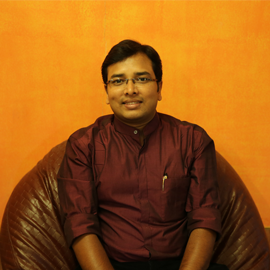Restrictions on fighting polls will change country's character: Jagdeep Chhokar

The governments of Haryana and Rajasthan have made certain educational qualifications mandatory for contesting panchayat elections. The issue was raised in the Rajya Sabha on 9 March when the Opposition succeeded in forcing an amendment to the Vote of Thanks for the President's Address.
The Congress termed these restrictions as an attempt "to exclude more than 50% of India's electorate from the right to contest elections". It was the BJP and the RSS' design, the party alleged, to take away the democratic right to contest polls from "all those who have been denied access, exploited and suppressed", specifically the poor, Dalits and Adivasis.
Read: Want to be a Haryana sarpanch? First pass class 10 and build a toilet
The amendment, moved by Leader of Opposition Ghulam Nabi Azad, added this to the Vote of Thanks motion: "The government is committed to securing the fundamental rights of all citizen to contest elections at all levels".
In Haryana's case, the matter was challenged legally and went all the way up to the Supreme Court. The apex court, however, upheld the state's law, saying it wasn't "irrational or illegal or unconnected" and that basic education would "enable the candidates to effectively discharge duties of the panchayat".
Catch spoke to Prof Jagdeep Chhokar, the founder of the Association for Democratic Reforms, on the possible implications of such restrictions for the less privileged sections of the society.
Here is what Prof Chhokar had to say:
These sort of election criteria throttle democracy. In Haryana, no candidates were found in 587 villages who fulfilled the criteria of having the minimum educational qualification and a functioning toilet at home, showing that the law is just not practical.
@JagdeepChhokar: Didn't Indians have a sense of right & wrong before being 'educated' by colonists?
Personally, I feel educational restrictions cannot be imposed on those wanting to contest elections until every child in the country has access to a reasonably good education. If we make matriculation compulsory for panchayat polls, will we make graduation compulsory for assembly polls and post-graduation for parliamentary polls?
This will end up making us a selective democracy. Our constitution-makers did not find this necessary and gave us universal franchise, which is being challenged here. This is unconstitutional and reveals an insidious plan to change the character of our country as we know it.
The Supreme Court's judgment on this was wrong on many counts. Firstly, the law makes the electoral process exclusionary as calculations made in the verdict itself reveal that such measures will disqualify 68% of the Scheduled Caste women of Haryana from contesting polls.
Also read- Panchayat verdict is anti-Constitution in spirit: Sitaram Yechury
Secondly, the judgment makes a sweeping generalisation that only education can give "a human being the power to discriminate between right and wrong, good and bad". Are the learned judges of the country's highest court implying that there was no discrimination between "right and wrong, good and bad" in India before its people started getting "education" as devised by the colonists?
In Haryana, in the last panchayat election, 15,825 candidates were declared elected unopposed, which essentially amounted to depriving citizens of their right to vote. This deprivation has been explained very well by the SC in the NOTA judgment: "Democracy is all about choice. This choice can be better expressed by giving the voters an opportunity to verbalise themselves unreservedly and by imposing least restrictions on on their ability to make such a choice."
Haryana's law will disqualify 68% of SC women from contesting polls. Why did the apex court uphold it?
The judgment goes on to clarify that "if the right not to vote effectively is denied", it will be a violation of "the fundamental right (to freedom of speech and expression) under Article 19(1)(a) read with statutory right under Section 79(d) of the RP Act."
Simply put, declaring candidates elected unopposed essentially means the citizen has been denied the right to vote as well as the right not to vote. Such an election is the very antithesis and negation of democracy as it deprives the citizen of the most fundamental choice which, according to the SC judgment, "democracy is all about".
Edited by Mehraj D. Lone
More in Catch:
DCW's 181 helpline: where women rush to protect women in danger
Environment ministry had the power to stop AOL event. Why didn't it?
Rajya Sabha passes Real Estate Bill. 6 reasons why it's good news for buyers
I won't be Gujarat Chief Minister again, says Anandiben Patel






![BJP's Kapil Mishra recreates Shankar Mahadevan’s ‘Breathless’ song to highlight Delhi pollution [WATCH] BJP's Kapil Mishra recreates Shankar Mahadevan’s ‘Breathless’ song to highlight Delhi pollution [WATCH]](https://images.catchnews.com/upload/2022/11/03/kapil-mishra_240884_300x172.png)

![Anupam Kher shares pictures of his toned body on 67th birthday [MUST SEE] Anupam Kher shares pictures of his toned body on 67th birthday [MUST SEE]](https://images.catchnews.com/upload/2022/03/07/Anupam_kher_231145_300x172.jpg)






